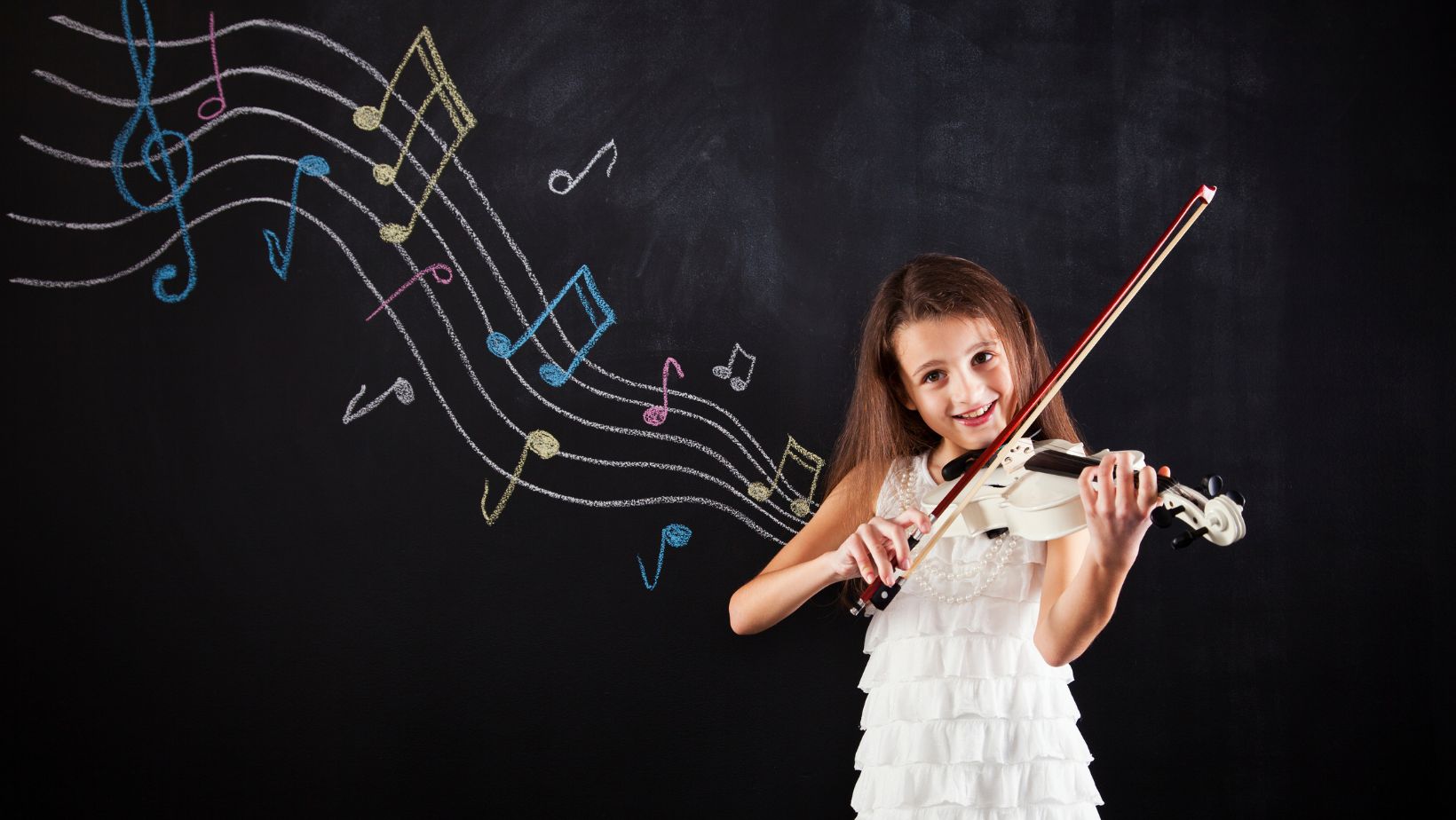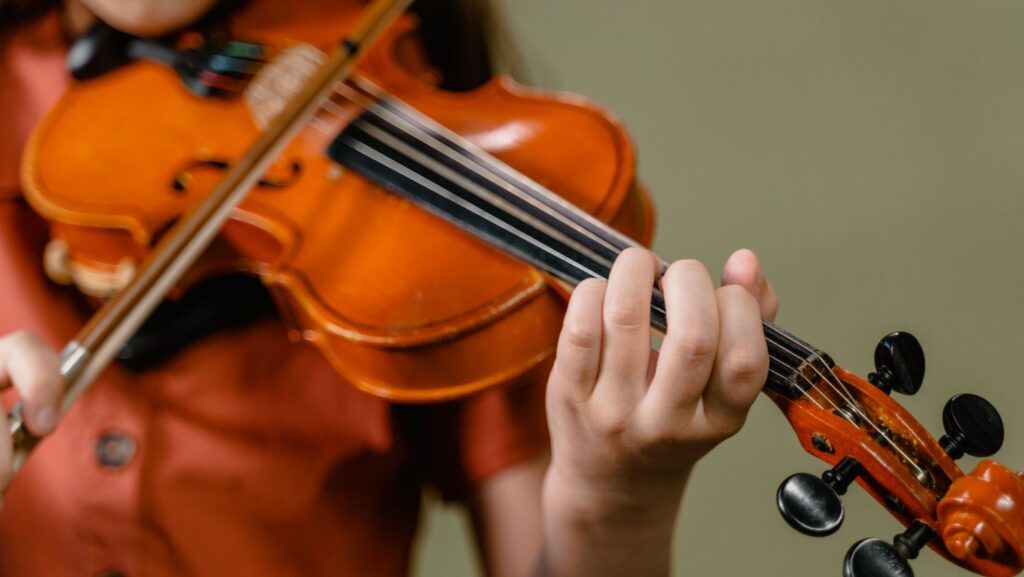There’s something magical about the first time a child draws a bow across violin strings. That initial scratchy, imperfect sound might make parents wince, but it marks the beginning of a transformative journey that goes far beyond music lessons. As families increasingly seek holistic approaches to child development, the violin emerges as a powerful tool for nurturing not just musical ability, but cognitive growth, emotional intelligence, and family connection.
The Violin Advantage: More Than Beautiful Music
When we think about activities that truly benefit our children’s development, we often focus on academics or sports. But research consistently shows that learning violin offers unique advantages that support the whole child. Unlike many other instruments, the violin demands simultaneous coordination of multiple skills: reading music, precise finger placement, bow control, and active listening. This complex multitasking creates new neural pathways that enhance problem-solving abilities, spatial reasoning, and executive function.
Dr. Nina Kraus, a neuroscientist at Northwestern University, has found that children who learn string instruments like the violin show enhanced brain development in areas related to language processing and attention. The discipline required to master proper intonation and timing translates directly into improved focus in other areas of life, from homework completion to social interactions.
Building Character Through Practice
Perhaps even more valuable than the cognitive benefits are the life lessons embedded in violin study. Learning to play this demanding instrument teaches children about patience, perseverance, and the reward of gradual improvement. Unlike video games or instant entertainment, the violin cannot be mastered quickly. It requires daily practice, attention to detail, and the humility to accept constructive feedback.
This process builds what psychologists call “grit” – the combination of passion and persistence that predicts success better than talent alone. You can encourage your child to pursue music by being positive and supporting this creative outlet.
Children who stick with violin lessons learn that meaningful achievement comes through consistent effort over time, a lesson that serves them well throughout life.
Creating Family Harmony
The violin’s role in family life extends beyond individual development. When a child learns violin, the entire family becomes part of the musical journey. Parents attend recitals, siblings listen to practice sessions, and grandparents beam with pride at performances. These shared experiences create lasting bonds and family traditions centered around achievement and artistic expression.
Many families discover that having a violin student in the house introduces everyone to new genres of music. Classical pieces that once seemed intimidating become familiar friends. Folk melodies from different cultures spark conversations about heritage and diversity. The violin serves as a bridge between generations, connecting children to centuries of musical tradition while creating new family memories.
The Practical Side: Supporting Your Young Violinist
For families considering violin lessons, practical preparation makes all the difference. A quality instrument and protective case are essential investments in your child’s musical journey. When properly cared for and transported, a good violin can last for decades and even be passed down through generations. Resources like greatviolincases.com offer excellent guidance on selecting the right case to protect your investment and ensure your child’s instrument stays in perfect condition.
The instrument’s portability is one of its greatest advantages – unlike a piano, a violin travels easily from home to lessons to school performances. This mobility means children can practice consistently and participate in various musical opportunities without logistical challenges.
Starting young, typically between ages 4-7, allows children to develop proper technique from the beginning and integrate violin into their identity formation. However, it’s never too late to begin – the cognitive and emotional benefits of violin study extend to learners of all ages.
Beyond the Notes: Life Skills That Last
As children progress in their violin studies, they develop skills that extend far beyond music. Learning to perform in front of others builds confidence and public speaking abilities. Working with accompanists and in ensemble settings teaches collaboration and compromise. Even the simple act of tuning their instrument before each practice session develops listening skills and attention to detail.
The violin also provides a healthy outlet for emotional expression. Children who might struggle to verbalize their feelings can often communicate through music, whether playing a melancholy piece when sad or energetic folk tune when happy. This emotional outlet becomes particularly valuable during the challenging adolescent years.
Making Music a Family Value
Introducing violin into your family’s life represents more than adding another activity to the schedule. It demonstrates a commitment to beauty, discipline, and personal growth that children internalize as core family values. The daily practice routine creates structure, the regular lessons teach respect for expertise and mentorship, and the periodic performances celebrate achievement and artistic expression.
 When families prioritize music education, they send a powerful message about what matters: that learning never ends, that some things are worth doing simply for their inherent value, and that dedication to craft develops character. These lessons shape children’s approach to future challenges, from academic pursuits to career choices to relationships.
When families prioritize music education, they send a powerful message about what matters: that learning never ends, that some things are worth doing simply for their inherent value, and that dedication to craft develops character. These lessons shape children’s approach to future challenges, from academic pursuits to career choices to relationships.
The Long View: A Lifetime of Benefits
While not every child who begins violin will become a professional musician, the vast majority will carry the benefits throughout their lives. Former violin students often report enhanced appreciation for classical music, improved discipline in other areas, and treasured memories of musical achievements. Many return to the instrument as adults, finding in it a source of stress relief and creative expression that remains available throughout their lives.
The violin’s song doesn’t end when formal lessons conclude. It echoes through improved cognitive function, enhanced emotional intelligence, stronger family bonds, and a deeper appreciation for beauty and artistry. In our fast-paced, technology-driven world, the violin offers something increasingly rare: an opportunity to slow down, focus deeply, and create something beautiful through patience and practice.
For families seeking to nurture their children’s complete development – cognitive, emotional, social, and spiritual – the violin provides a path that has enriched human lives for centuries. Its song becomes part of your family’s story, creating harmony that extends far beyond the music room.
